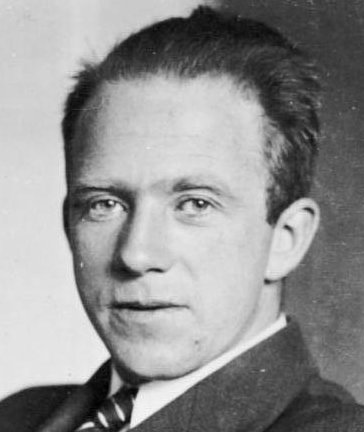
On April 24, 1973, about three years before his death, he gave a lecture entitled “Tradition in Science.” It draws on the knowledge he gained through nearly an entire lifetime of scientific experiences. The talk has been reprinted many times in publications such as the Bulletin of Atomic Scientists. Early on, he draws a distinction between descriptive science (which was championed by great thinkers like Aristotle) and mathematically-based science, which he calls the “new method.” He then writes:
Therefore two features are essential for the new method: the attempt to design new and very accurate experiments which idealize and isolate experience, and thereby actually create new phenomena, and the comparison of these phenomena with mathematical constructs, called natural laws. Before we discuss the validity of this method even in our present science, we should perhaps briefly ask for the basis of confidence, which led Copernicus, Galileo, and Kepler on this new way. Following a paper of von Weizsäcker, I think we have to state that this basis was mainly theological. Galileo argued that nature, God’s second book (the first one being the Bible) is written in mathematical letters, and that we have to learn this alphabet if we want to read it. Kepler is even more explicit in his work on world harmony; he says: God created the world in accordance with his ideas of creation. These ideas are the pure archetypal forms which Plato termed Ideas, and they can be understood by Man as mathematical constructs. They can be understood by Man, because Man was created as the spiritual image of God. Physics is a reflection on the divine Ideas of Creation, therefore physics is a divine service.
Now, of course, what he calls the “new method” is essentially the way we do modern science. In other words, science in its current form was motivated by theology, specifically the Judeo-Christian idea that man is made in God’s image.
I have written previously about the fact that science is a product of Christianity (here, here, here, and here, for example) but Dr. Heisenberg’s lecture emphasizes that fact. Anyone who tells you that “religion” (or Christianity in particular) is incompatible with science shows not only a shocking ignorance of the history of science, but also an ignorance of what science is to begin with.

Love this, thanks. I’ve never seen/heard that lecture before, but I’m not surprised you found it! It’s a nice concise summary to share with others. Peace to you.
Interestingly enough, I had read it a LONG time ago and had kind of forgotten it. However, a Facebook “friend” posted the last few lines and made it sound like they represented Heisenberg’s own view. He did write on science and religion a lot, but he essentially believed that science and religion should be thought of separately – science for the material world, religion for the spiritual world. That reminded me of the piece. I posted a comment on my “friend’s” post and just decided to write a short (well, short for me) blog article about it.
Yes, I thought that the way it was quoted made it difficult to know if those last sentences were Heisenberg’s voice or if it was Kepler’s. I figured it was Kepler’s but still, it’s significant that Heisenberg quoted him. I wish that you had cited a reference that wasn’t behind a pay wall. I suppose I could search around and find somewhere where it’s available for free but it’s not that big a deal. You’re a reliable source so if you post it, I’ll take it as true! (I usually insist on verifying quotes from the internet. A good practice for all of us to insist on.)
This is a source that you can electronically borrow for a small length of time for free. In this book, the quote is found at the bottom of p.8 and continuing on to p. 9.
“The first gulp from the glass of natural sciences will turn you into an atheist, But at the bottom of the glass God is waiting for you.” – Werner Heisenberg
That’s almost certainly not a quote by Heisenberg.
Hello, Dr. Jay.
Have you seen this study?¹
“God created the most perfect quantum computer: the DNA.”
[1] https://www.nature.com/articles/s41598-024-62539-5
No, I had not. Thank you for posting. I look forward to reading it.